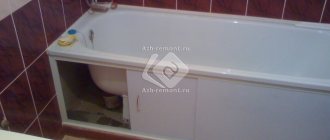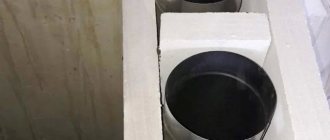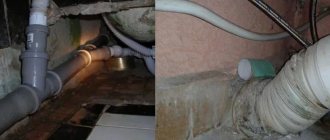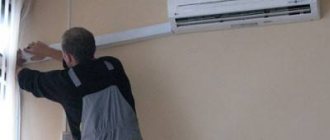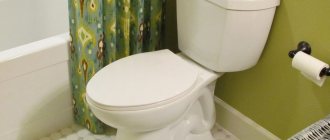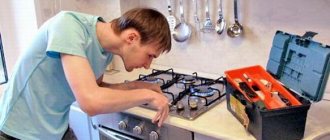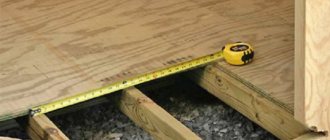It often happens that after several years of trouble-free use of the air conditioner, it suddenly begins to make an unpleasant noise. Agree, it is quite stupid to throw away equipment just because of a slight crackling during operation, especially if it is a branded air conditioner.
Even such a seemingly harmless “symptom” can signal a serious malfunction, which can cause the final breakdown of the climate control equipment. To restore normal operation of the equipment, it is important to accurately determine the causes of air conditioner noise and eliminate them in time.
Annoying noise may also occur due to improper installation, but in this case, the first signs of malfunction will appear in the first months after the start of operation. Later in the article you will learn how you can recognize the type of breakdown by the type of noise and quickly fix it without the help of a technician.
What sounds should alert you?
A properly functioning air conditioner sounds no louder than a calm human conversation or the ticking of a mechanical clock. In numbers, the indicator is 30-40 dBa. This fits into the norms established by law for household appliances.
During the daytime (from 7 to 23 hours), noise penetrating through the walls of residential premises should not exceed 55 dBa. In the evening (from 23 to 7 o'clock) the level is even lower - up to 45 dBa.
Exceeding the sound volume beyond sanitary boundaries causes a lot of inconvenience to apartment residents and surrounding neighbors. In some cases, deviations from the norm can be harmful to health.
In the case of air conditioners, signs of problems may include:
- a noticeable increase in volume (in comparison with voices and according to the readings of special instruments);
- periodic ringing;
- crack;
- vibration of the device and the wall on which the installation is made;
- whistling;
- hum
In addition to those listed, there are other atypical “voices” of the climate system. None of them can be left unattended to avoid serious damage.
When to contact the service center
The design of modern climate control systems includes software and hardware systems operating in tandem. Malfunctions arise mainly as a result of untimely maintenance or mechanical damage. However, in the absence of the necessary experience and knowledge in the field of climate control technology, it is highly not recommended to open the air conditioner and begin an independent search for the cause of extraneous noise.
When using climate control equipment with a valid warranty period, you don’t need to think about what to do and where to go. If previously unnoticed noises appear, the only correct solution in this case is to call the company’s service center team. Thanks to the professional experience of the craftsmen and the use of original components, efficiency and high quality of the work performed will be guaranteed.
So, timely maintenance of the split system is the basis for the proper and durable functioning of climate control equipment. Sudden, unusual noises almost always indicate a malfunction in the air conditioning system. And the failure of such equipment in extreme heat is a huge problem. If, while in a car, it is enough to simply open the windows, then such manipulations in a large room will not save you from the excruciating heat. Therefore, the equipment should be operated in accordance with the user manual. It is also necessary to regularly carry out preventive measures. But some breakdowns can be repaired yourself.
External unit breakdowns
Structural problems include vibration, increased blade noise, crackling and grinding noises.
Expert opinion
Starostin Konstantin Adreevich
Air conditioner installation and maintenance specialist
The first thing you need to pay attention to is whether the installation of the equipment was carried out correctly. This action is especially relevant for “young” air conditioners up to 3 years of operation.
Next you will need to check the following elements:
- blades _ Accumulation of dirt, ice, chips and cracks visible without disassembling, large debris (leaves, cobwebs, poplar fluff, sticks) - all this interferes with proper operation;
- frame . Dents and chips may indicate the fall of icicles, heavy objects from neighbors' windows and from the roof, or intentional impacts. Deformation leads to internal damage from disruption of the distribution of thermal load;
- bolts and springs . Loose fasteners can cause significant vibration. A spring that is too long also creates vibration problems when starting. The fixation of the protective grille should also be checked;
- vibration isolation . If its fastenings are dry, the noise level increases significantly;
- compressor crankcase . Low oil level in the refrigeration circuit and its mechanical damage lead to a hum.
Such reasons are most often the result of an incorrect choice of location for installing the air conditioner or incorrect fastening to the wall; there are cases of sabotage from other residents of the house, birds and animals (especially when the equipment is located on the lower floor levels).
In the vast majority of cases, a slight crackling sound does not have a serious underlying cause. it is caused by compression and expansion of the material due to temperature changes. This is especially true for plastic elements.
The fan crackles and rattles
After removing the protective grille, turn the propeller to see if it touches elements of adjacent structures, and a cracking sound would be heard. If the propeller moves crookedly, the engine is disassembled and the bearings are checked for worn balls, broken separators, and a crooked axle. The fact is that a “crookedly” spinning or split propeller breaks the fan mechanics, and you can hear the cracking and creaking of broken bearings. The broken propeller is replaced. Faulty balls and crowns are also replaced with new ones. The crooked axis is either leveled and balanced, or another one is installed - from the same motor.
The task is to ensure smooth, vibration-free rotation of the propeller. After dripping a little oil into the bearings, the motor with the propeller on is suspended on a bendable support and turned on and allowed to run for several minutes. If the fan does not vibrate and does not rock the support, the motor is re-opened, lithol or grease is filled into the bearings, assembled and put back into the block. If the winding is burned out, then install a new motor. The convector (fan) of the indoor unit has the same problem. The engine is disassembled, cleaned and lubricated once a season or six months. Worn balls and a broken propeller must be replaced.
Damage to the indoor unit
Internal engine problems are usually accompanied by hum and other sounds at low frequencies. There are also vibrations, tapping, and an increase in overall volume.
In such cases, the following must be checked:
- compressor and transformer . The service life of the elements is on average 15 years, but it happens that they fail much earlier, especially if the installation of the device was carried out with violations of technology;
- impeller motor, bearings . Cracks, lack of lubrication, deformation, imbalance can cause sounds, even rumbling;
- drainage pump . Noisy when dirty and critically worn;
- freon pipes . Special attention should be paid to the tubes transporting the refrigerant. Creases and narrowings, depressurization, clogging can be accompanied by leaks, as a result, characteristic hissing when the device is turned on and off. The reason often lies in poor quality assembly by the manufacturer.
The most telling sound is also gurgling and the effect of pouring liquid. It indicates the heat exchanger is thawing or a complete shutdown of the equipment is imminent.
Expert opinion
Starostin Konstantin Adreevich
Air conditioner installation and maintenance specialist
In most cases, internal and external breakdowns are interconnected. Poor fastening or impact causes “injury” to the impeller, transformer and compressor. Conversely, wear and tear on the fan can cause excessive debris to accumulate on the blades.
A universal way to reduce vibrations is to install vibration damping supports.
The supports are made of soft but tear-resistant rubber, into which metal threaded studs are soldered on both sides, not connected to each other. Due to this, a significant reduction and damping of vibration is achieved. Due to the fact that the pin inside the support is not solid, the air conditioner does not have a “hard” contact with the metal brackets and does not transmit vibration to the brackets-wall-room.
Sometimes “skilled” installers replace profile climate vibration mounts with automotive analogues (radiator cushions, etc.), which are not resistant to UV radiation, which is why they become unusable after three to four years and the vibration becomes greater than without the use of spacers .
Vibration supports are not included in the “standard” installation. But if you want to get maximum comfort, or the installation will be on a building envelope, you can always order them as an option. The cost is only 25 BYN for a set of 4 pieces.
<
How to fix problems
Without the appropriate education and experience, eliminating the causes of noise yourself will be possible in a minimum of cases.
If you have an understanding of the basic functioning of the equipment and the appropriate tools, you can work in the following areas:
- replace/correct the impeller if damaged or unbalanced;
- remove ice and dirt from the fan using a brush and detergent;
- tighten the fastenings with a screwdriver, shorten the support spring;
- additionally screw the grille onto the freshly drilled holes near the standard fasteners;
- remove and wash the filters with running water;
- top up the oil;
- flush the external radiator;
- remount the entire unit correctly;
- replace worn out vibration damper gaskets;
- replace the screws on the fasteners and tighten them with rubber sealing rings;
- seal small cracks on the blades and body;
- If there is no thermal insulation on the pipes inside the structure, strengthen the existing one with clamps.
If a split system is installed without special winter protection, and the noise occurs during the cold season, you should immediately stop using the device. Standard models are rated up to -7C. For more severe conditions, it will be necessary to replace the equipment with another one with a special modification down to -30C.
Only a person with the appropriate knowledge can reliably determine the source of the problem and the solution. If there are difficulties with diagnostics, it is preferable to immediately call a technician, leaving the air conditioner a chance to be resuscitated. Independent disassembly of equipment without skills always carries the risk of breaking some component.
Reviews
Irina Mukhina, Smolensk
We purchased a split system in the spring. Tried it, works well. Of course, there is no need to turn it on at such times. But at night he suddenly began to whistle. And it sounds like the wind is blowing. They couldn’t find anything themselves, so they called a technician from the service center. He immediately said that the drainage hose was whistling. It's like the wind is blowing into it. He did it very simply - he stuck a piece of sponge into the hose from the street. Now everything is calm.
Marat, Kazan
It’s strange, but after five years of operation, the air conditioner in my house is humming. And an incomprehensible noise with a knock. I myself am not friendly with technology, so I called a specialist. He opened the panel inside the room. Horror, it turns out that the entire heat exchanger and fan are overgrown with dirt. The technician explained that the fan had become unbalanced and the bearings had become loose. So he knocks on the evaporator. He said that I called on time. A little more and instead of cleaning it would have been necessary to purchase expensive spare parts.
FAQ
The air conditioner is noisy and leaks in the summer, and becomes covered in ice in the winter. What is the problem?
Most likely, the problem is a freon leak or lack thereof. Only a specialist can reliably determine.
Is it possible to refill freon fluid yourself?
Working with freon is very difficult. You should take it on only with full confidence in your abilities or with an understanding of the risk and responsibility for possible damage to the air conditioner. In addition, you will need a professional gauge manifold.
Do I need to turn off the power to the air conditioner for diagnostics?
Necessarily. Any inspection and intervention begins with turning off the power to the equipment.
The air conditioner hangs at an angle. Could this be causing the knocking and vibration?
Quite. Normally, the tilt of the block does not exceed 5 degrees. If you have more, try adjusting the body position and observing the changes in sound.
How often should filters be washed to prevent humming?
Once every 2-3 weeks in a dirty room and once every 2-3 months with regular cleaning and maintaining order.
Eliminating the causes of air conditioner noise
For better clarity, we will give several examples of breakdowns accompanied by specific sounds, and also consider the most effective ways to eliminate them. In this case, we will talk about the most common mistakes when caring for equipment, which are very costly for users.
It should be remembered that independent repair of climate control equipment is possible only in case of minor malfunctions. If you understand that you cannot fix the problem yourself, then it is better to seek help from a qualified specialist. It will still cost less than buying a new split system.
Air conditioner filter dirty
If the internal filter is dirty, not only does normal air circulation within the system become disrupted, but general malfunctions in the operation of the air conditioner may also occur.
This causes ice to accumulate in the copper pipes, causing the air conditioner to hum loudly and cause water to constantly drip from its housing.
It is recommended to wash the filter approximately once every three weeks, and it is important to completely remove all dirt without using a brush or brush, as they can damage the structure
To completely clean the system of dirt, it is necessary to rinse the filters under running water, and only after drying, put them back. Otherwise, due to regular failures in the system, the air conditioner may completely break down.
Freon leak from the system
Even with regular air conditioner maintenance, a freon leak may occur. The normal leakage rate is 2-3% per year, which is approximately 150 grams.
It is recommended to refuel the unit approximately every three years. This will not only eliminate the noise of the air conditioner as quickly as possible, but also increase the level of freon in the system to the required value.
In some cases, leakage rates may exceed established standards, a sign of which is the formation of ice and frost on copper pipes and a characteristic hissing noise. Ignoring the problem will lead to rapid wear of the main parts of the device.
Short air conditioner cycle
Quite often a situation arises in which the device turns off after 15-20 minutes of continuous operation. The reasons for its occurrence can be either a simple failure in the settings or a breakdown of the control board or thermostat.
However, the most common cause is considered to be contamination of the external radiator.
The consequence of a dirty radiator is overheating of the entire system, which ultimately leads to a complete shutdown of the climate control equipment.
The problem of radiator contamination can be solved by flushing the radiator with strong water pressure. Short operation of the air conditioner may also be due to excess refrigerant in the system. So, you will need to measure the operating pressure in the compressor, and only if the air conditioner is overloaded with freon should you drain the excess liquid.
The best thing you can do is to promptly carry out all the necessary procedures to maintain the normal operation of the device, which will prevent its premature failure.
In other cases, you will need qualified assistance from a technician who will accurately determine the type of breakdown and quickly restore the operation of your air conditioner.
Worn vibration dampers
A good and cheap vibration damper is a rubber gasket. They absorb vibration from the outdoor unit, which is secured using steel fasteners and hangers. Otherwise, vibration and noise are easily transmitted through the load-bearing wall of a house or building. Low-quality rubber will quickly fade and crumble in the sun within a year or three, and the sound insulation will be impaired. There must be rubber gaskets under the bolts. Don’t skimp on good rubber: it should be of the same high quality as the rubber rings for the self-tapping bolts that attach the roofing sheets to the roof sheathing.
Video: LG GA-E499ZAQZ refrigerator – compressor hum (noise)
Refrigerator LG GA-E499ZAQZ hum (noise) of the compressor (see in headphones)
Watch this video on YouTube
I recommend to read:
- Why is the LG No Frost refrigerator humming - The presence of a No Frost system in an LG refrigerator implies the presence and operation of a fan that distributes cooled air inside the refrigerator. Know that...
- Why the refrigerator hums: reasons - Every refrigerator hums during operation - the average noise level is 38-44 dB. If it makes more noise, uncomfortable conditions are created both in the kitchen and in other rooms. Sometimes…
- Why does the refrigerator click? — Extraneous noises hint at the presence of a technical malfunction, but this is not always the case. If your refrigerator compressor is cracking, you need to take the right measures. Such a major breakdown...
- Replacing the Atlant refrigerator fan - A non-working fan is a common malfunction that requires an immediate solution, because... could lead to more serious and costly damage...
- Why does the refrigerator turn on, then immediately turn off and not freeze? — At the current level of development of technology and daily household needs, a refrigerator is an indispensable device. But no equipment can last forever, and refrigerators are no exception...
- The refrigerator does not freeze: how to solve a household problem - A common problem in the refrigerator is the lack of the required temperature. There are many reasons why it stops freezing. Sometimes they can be easily eliminated with your own hands...
- Replacing the evaporator sensor of an Atlant refrigerator with your own hands - Replacing evaporator sensors in a refrigerator is not such a frequent, but common repair. The resistor responsible for temperature, even in expensive models, remains fragile and capricious...
First steps when detecting faults
Experts do not recommend doing repairs yourself; there is a high risk of making a mistake if you do not deal with refrigeration equipment every day. It is not recommended to even fill complex equipment with freon and clean the units yourself.
It is enough to be vigilant in time and contact a specialist. Give the technician as much information as possible so that he can quickly identify and fix the problem.
Since extraneous sounds always indicate a malfunction, the technician will have to perform diagnostics and act depending on the identified problem:
- clean block filters,
- flush the drainage system,
- carry out vacuumization of pipes,
- refill the air conditioner with freon,
- lubricate the parts
- repair or replace faulty components.
A good technician will take all necessary measures and your air conditioner will last for a long time.



